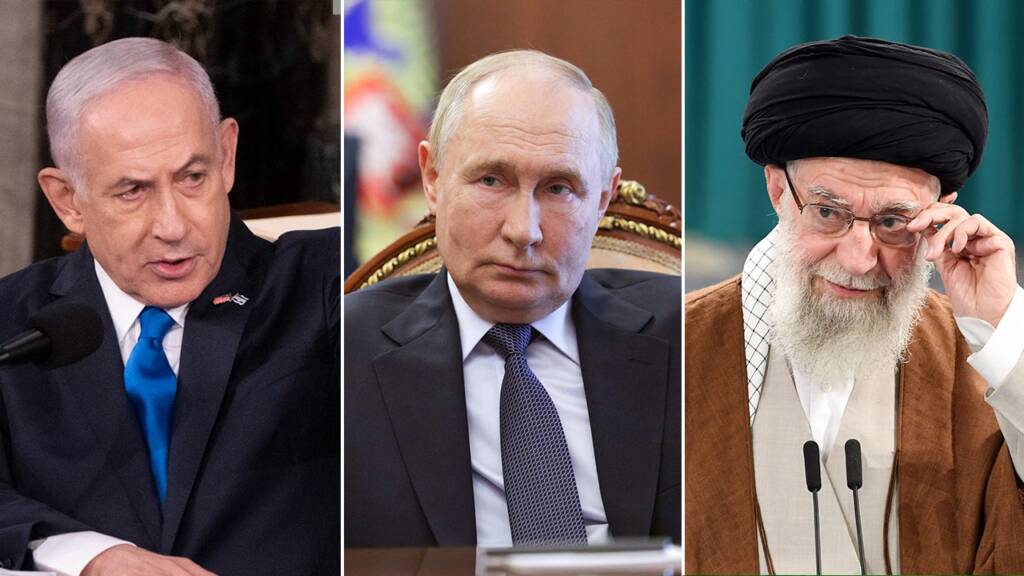In the wake of reported Israeli strikes on Iranian territory, Russia has issued a sharp condemnation, labeling the actions as violations of international law and the United Nations Charter. The Russian Foreign Ministry released a statement on Friday calling the attack a “blatant breach of international norms” and warning that it could lead to a dangerous escalation in an already volatile region.
This reaction underscores Moscow’s growing strategic alignment with Tehran, a relationship shaped by shared geopolitical interests, economic cooperation, and a mutual desire to counterbalance U.S. influence in the Middle East and beyond.
Russia-Iran Strategic Partnership
Russia and Iran have cultivated a multifaceted partnership over the past two decades. While historically cautious toward each other, recent years have seen a significant deepening of ties. Their cooperation spans military, economic, and diplomatic realms:
Military Cooperation: The two countries have coordinated closely in Syria, where they both supported the Assad regime. Iran’s Islamic Revolutionary Guard Corps (IRGC) and Russian military forces have operated in parallel, albeit sometimes competitively. More recently, Russia has reportedly procured Iranian drones for its war in Ukraine, while offering Tehran advanced air defense systems.
Economic Ties: Facing Western sanctions, both nations have found in each other alternative trade partners. They have expanded trade agreements, energy cooperation, and banking ties aimed at bypassing the SWIFT financial system.
Geopolitical Interests: Russia views Iran as a counterweight to Western presence in the Middle East, while Iran sees Russia as a strategic partner that can provide diplomatic cover in international forums such as the UN Security Council.
How Russia might Support Iran?
Given the latest developments, Moscow is likely to back Iran in several key ways:
Diplomatic Shielding: Russia can use its veto power at the UN Security Council to block any resolutions that aim to penalize Iran or support Israeli actions. Moscow will likely also use international platforms to amplify its narrative that Israel is destabilizing the region.
Intelligence and Military Aid: Though Russia may not enter the conflict militarily, it can bolster Iran’s defense capabilities through advanced radar systems, missile technology, and joint training. There are already indications of continued military-technical cooperation.
Cyber and Electronic Warfare: Russia and Iran are both skilled in cyber capabilities and could collaborate on electronic warfare initiatives aimed at deterring or disrupting Israeli operations.
Information and Propaganda Campaigns: Russian state media and diplomatic channels are likely to highlight Israeli aggression, painting it as a threat to global peace and stability while framing Iran as a victim of Western-backed militarism.
Russia’s Balancing Act
Despite its strong condemnation, Russia must tread carefully. It maintains working relations with Israel, especially in Syria, where both countries coordinate to avoid direct military conflict. Moreover, a broader regional war would not serve Russian interests, as it could destabilize key allies and divert global attention from its war in Ukraine.
Moscow’s ideal scenario is one in which it can portray itself as a mediator while simultaneously cementing its influence with Iran and other anti-Western states.
Russia’s swift and unequivocal condemnation of Israel’s recent strikes on Iran signals not only diplomatic solidarity but also a broader strategic intent to deepen its alliance with Tehran. While direct military intervention is unlikely, Russia is poised to support Iran through diplomatic, military, and cyber channels, potentially reshaping power dynamics in the Middle East.
As tensions rise, the Russia-Iran partnership could emerge as a cornerstone of a new axis opposing Western-aligned powers in the region—raising the stakes for any future confrontation.
